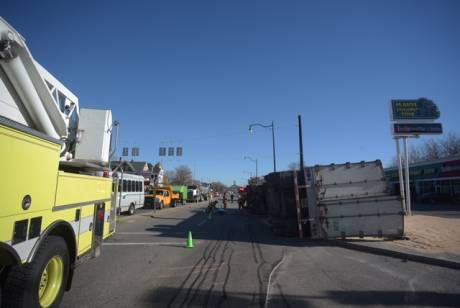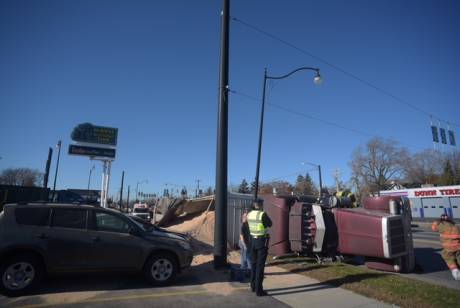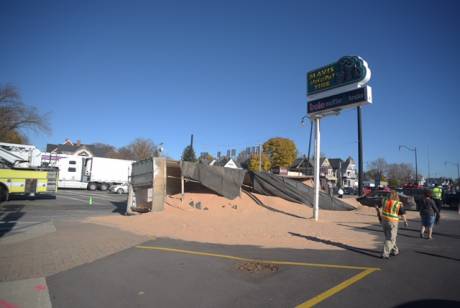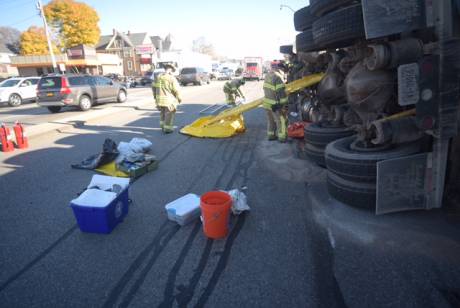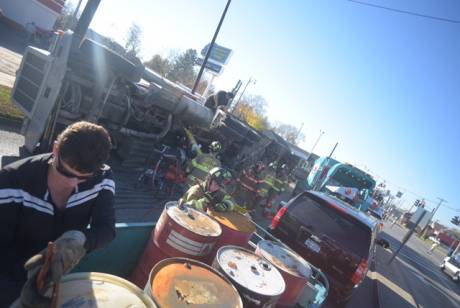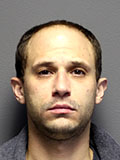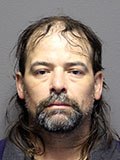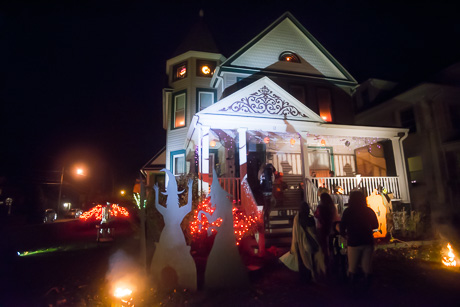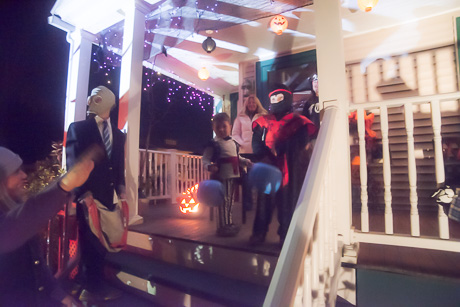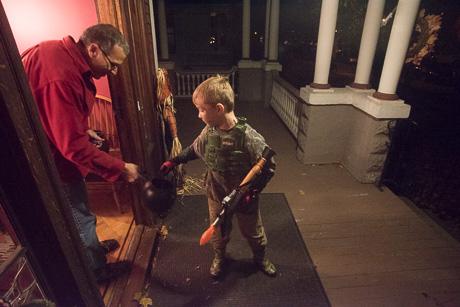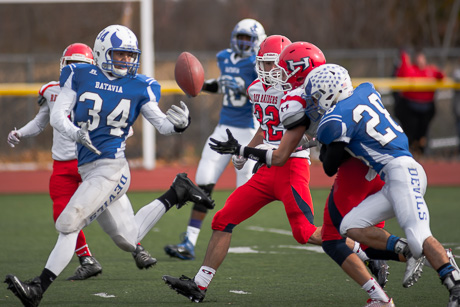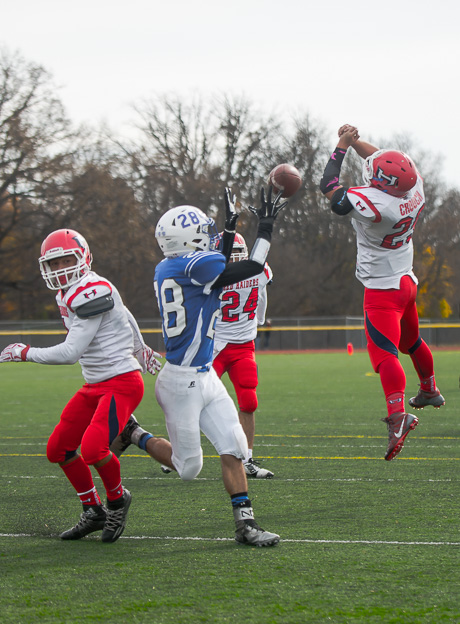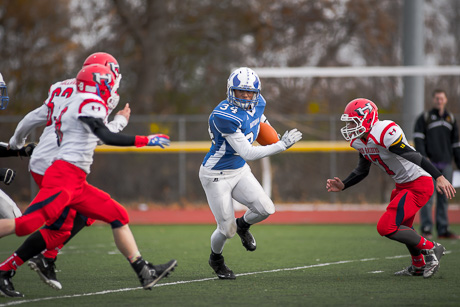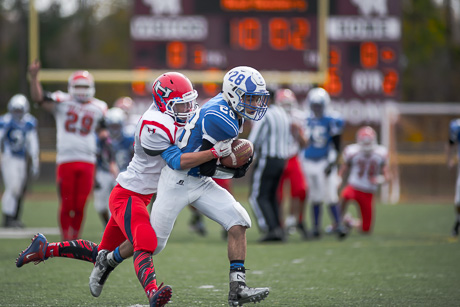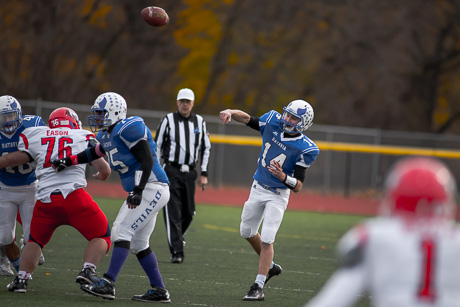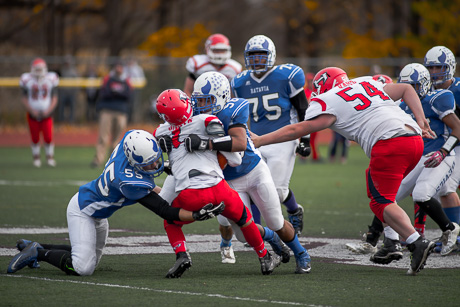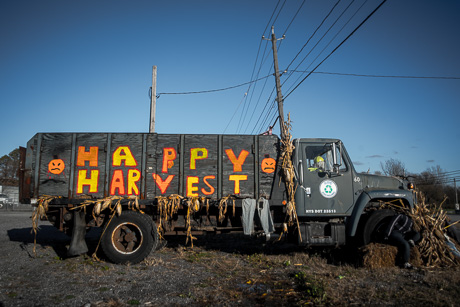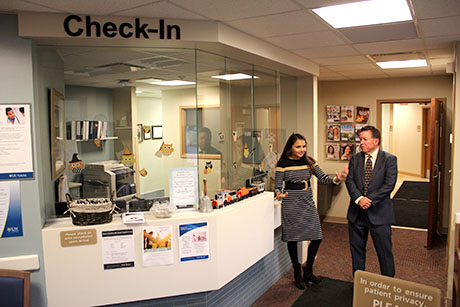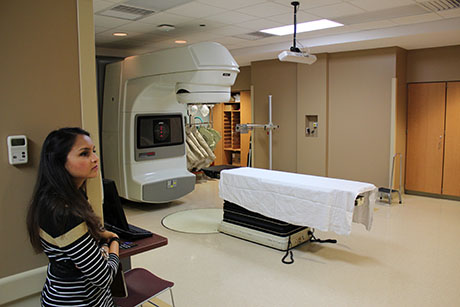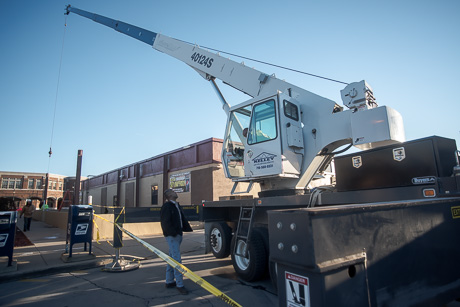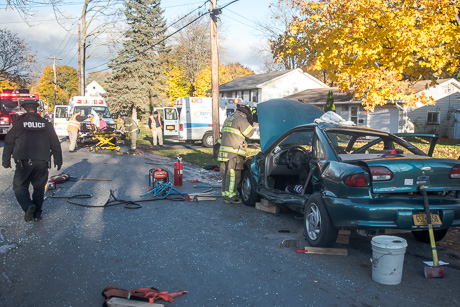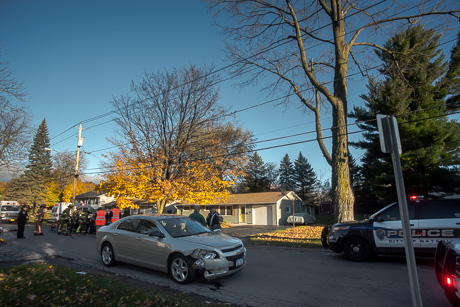Proposed property tax for Town of Batavia draws speakers to public hearing
The prospect of the town’s first property tax levy in more than three decades accomplished at least one thing Wednesday night. It drew an interested crowd to Town Hall.
About a half-dozen residents spoke during what amounted to two public hearings regarding the proposed 2016 town budget, which calls for a property tax levy of $500,000 and a tax rate $1.42 per $1,000 assessed value.
Speakers shared their concerns about the proposed tax levy, complimented the board for its work and asked questions about the budget — questions Supervisor Greg Post welcomed.
But little was offered to change the town’s dismal budget outlook.
“I am open to anything that would do a better job than what we have done,” Post said. “And I would welcome any opportunities to change the metrics and to try to reduce our exposure and still sustain the community.
“The next 30 years are going to be tougher than the last 30,” he said.
Those “metrics” include more than a decade of relying on cash reserves to balance the town budget, combined with decreasing sales tax revenue, stagnant investment income and rising costs.
The result is a proposed 2016 budget that calls for $4.64 million in general fund spending, a decrease of $300,000 from this year. The budget would use $600,000 from cash reserves, which would leave a projected fund balance of $1.4 million.
The public hearing on the proposed budget was Wednesday night. Also on the agenda, was a public hearing on proposed Local Law No. 5, which would override the state-imposed 2-percent cap on property tax increases.
The board took no action on either issue. A work session is scheduled for Nov. 10, and the board will likely vote on the 2016 budget and tax cap override when it meets on Nov. 18, Post said.
Speakers during Wednesday’s hearing said a new tax would be tough to bear.
“We have a lot of senior citizens in our town, that are not going to get a cost of living raise (next year),” said Cheryl Kowalik, of Alexander Road.
And breaking the property tax cap, she said, means those same residents will not receive a property tax rebate check from Albany next year.
“We’ve been conscious of that for a long, long time,” Post said. “It’s a big part of every budget conversation every single year.”
Post said instituting a tax levy was a decision that could no longer be postponed. It’s been the subject of “heated” discussions since budget talks began this past summer.
The proposed budget, he said, is one of three spending plans he’s compiled this year — and it is essentially a compromise.
The first version included no tax levy but would have slashed reserves to a risky level.
The second plan, set aside a more robust reserve fund. But it included a $1 million levy, with a $2.84 per $1,000 assessed value property tax rate.
Ultimately, the board agreed to spend just $600,000 in cash reserves and impose a $500,000 tax levy.
“With the understanding,” Post said, “that we will continue to whittle away the use of the unexpended fund balance, and reduce our spending to the same degree we reduced it this year.”
Bob Zeagler, of Donahue Road, called for more immediate spending cuts.
“Please don’t add more taxes to us already overburdened taxpayers,” Zeagler told the board. “Go back and start cutting and trimming, everywhere and anywhere, with a very sharp chainsaw — raises included.”
Post said the proposed budget calls for pay increases of 3 percent, on average.
Freezing wages might make good politics, he said. But it would make little practical difference in the budget, and would hurt town services.
“I knew what my job was when I took office,” Post said. “But the responsibility of all of you in this room, and every resident of this town … is to find someone who can do this job better than me, for less money.”
The Town Board schedules work sessions every week, he said, and the Town Hall doors are always open.
“You want transparency in government? We’ve had 500 meetings — no one attends,” he said. “We still have them; no one shows up.”
Residents need to be “watchdogs,” Post said.
“If there is a concern with the level of service any of you have received from any of our staffers,” he said, “I will listen, and we will investigate. Every staffer here — every person that’s employed — starts from zero every year in July and they have to justify their wage and what they do.
"We do absolutely our best to reduce the costs and still attract and retain and encourage people to do more. It’s a delicate walk.”
No one spoke during two additional public hearings scheduled Wednesday concerning water and sewer rates for May 2016 through February 2017.
The proposed sewer rents are $5.62 per 1,000 gallons in sewer districts Nos. 1 and 2. The proposed base water rate is $4.95 per 1,000 gallons and the proposed agricultural water rate is $3.31 per 1,000 gallons.


